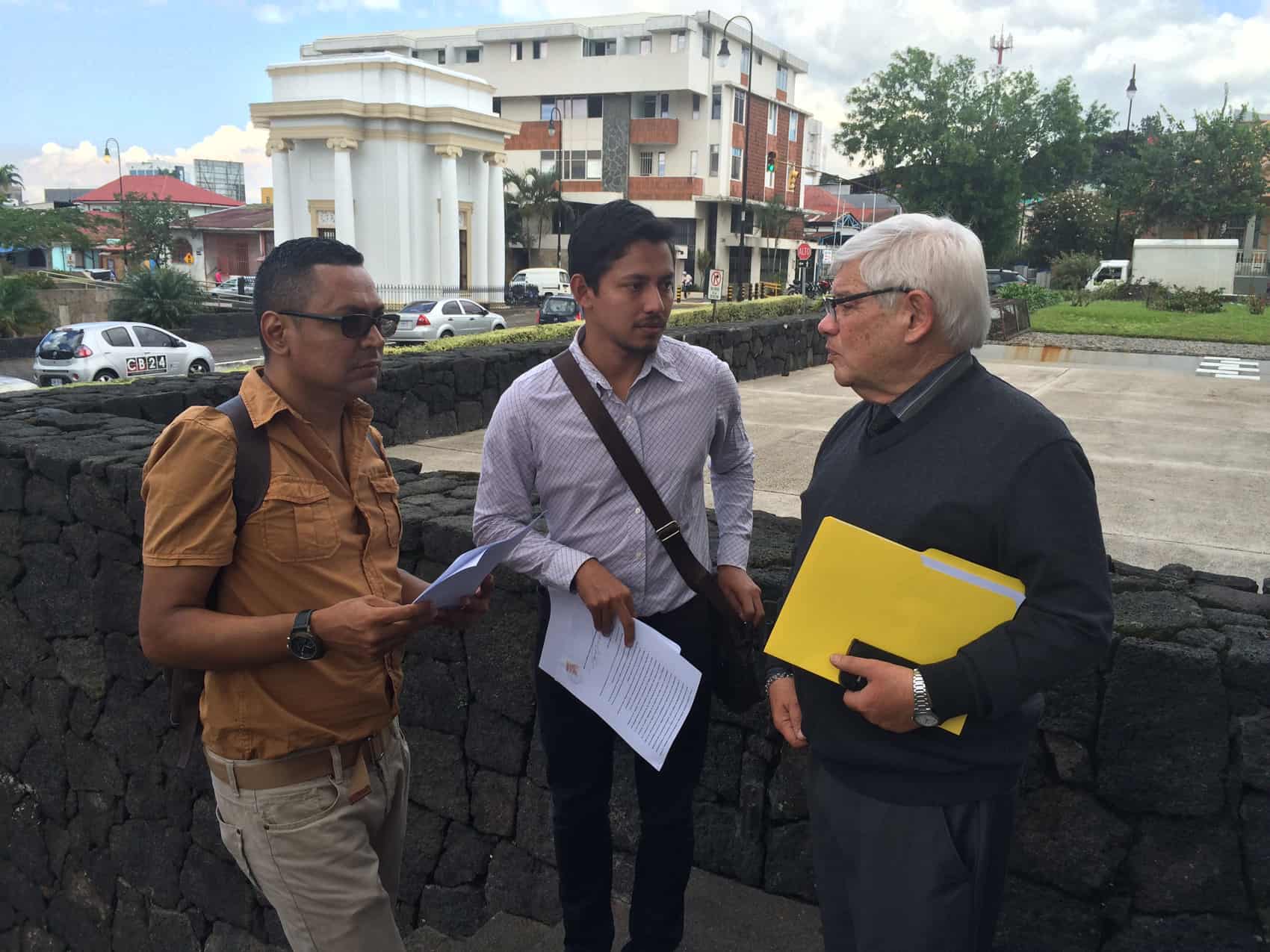A gay Honduran HIV/AIDS activist who was denied refugee status in Costa Rica filed a constitutional appeal over his case on Wednesday.
David Sequeiros from Honduras hoped that the appeal would pressure the government to act on other pending asylum petitions from lesbian, gay, bisexual and transgender applicants fleeing violence and persecution in other Central American countries.
“I left my life behind in Honduras,” Sequeiros told The Tico Times on the steps of the Supreme Court. “My life changed overnight.”
Carlos Ariñez of the NGO Casabierta noted that there has been a “wave of hate crimes” and violence across Guatemala, El Salvador, Honduras and Nicaragua. “Persecution and risk of death is pushing young people to emigrate to Costa Rica, where they ask for refuge,” Ariñez said in an email.
There have been at least 10 successful petitions for refugee status based on someone’s sexual orientation or gender identity in Costa Rica, according to Casabierta, an organization that works on behalf of LGBT Central American asylum seekers. Casabierta co-founder Zoilamérica Ortega claimed that another 10 applications have been denied or tied up and drawn-out by immigration tribunals, including Sequeiros’.
Refugee applicants can stay in Costa Rica while their case is pending, but Ariñez and Ortega said that the legal limbo leaves asylum seekers without access to the national health care system and a source of income. Many employers confuse the refugee applicant temporary identification card with that issued to parolees, for example, said Sequeiros.
Sequeiros worked with Organización Pro-Union Ceibeña, the only LGBT group in La Ceiba, Honduras, when the organization started denouncing police aggression. In January 2013, the group started receiving threats, including against its director, Patricio Vindel. The threat caught the attention of Amnesty International, among other human rights groups.
Soon, the threats were realized. Alfredo Urbina, a psychologist who worked with the group, was killed in March. On April 1, Sequeiros said a gunman entered their offices and beat him as he tried to corral the rest of the small staff into a bathroom where he intended to shoot them. A transgender woman who worked with the group ran out into the street and flagged down a police officer, saving the five inside before the gunman could kill anyone, Sequeiros said.
“After the death of Alfredo the organization fell apart,” Sequeiros said. “They threatened all five of us and said that if we spoke up they would kill us and our families.”
The remaining LGBT activists fled to the Honduran capital, Tegucigalpa, but the threats followed them. Sequeiros and his partner left for Panama before arriving in Costa Rica to seek refugee status in June 2013. His colleagues have since been granted refugee or another legal status in Argentina, Mexico and Spain. Sequeiros has not been so lucky.
The immigration court that reviews refugee applications ruled that Sequeiros was not persecuted but rather the victim of a common crime, and denied his application. Sequeiros appealed the decision — twice — and now has taken his case to the Constitutional Chamber of the Supreme Court. Since Sequeiros and the rest of the group have left Honduras, another transgender woman who worked with the group was stabbed to death.
But LGBT migrants are not alone in their search for refuge here. In June, Costa Rica’s Immigration Administration reported that it had seen a jump in refugee applications during 2014, especially from El Salvador and Honduras. Public Security Vice Minister Carmen Muñoz told The Tico Times then that the profile of refugee applicants has changed from people fleeing political persecution to those looking to escape everyday violence that is on par with war zones.
“I brought all the evidence about how this man almost killed me, left me beaten,” Sequeiros said. “The facts show that we were persecuted and threatened.”






